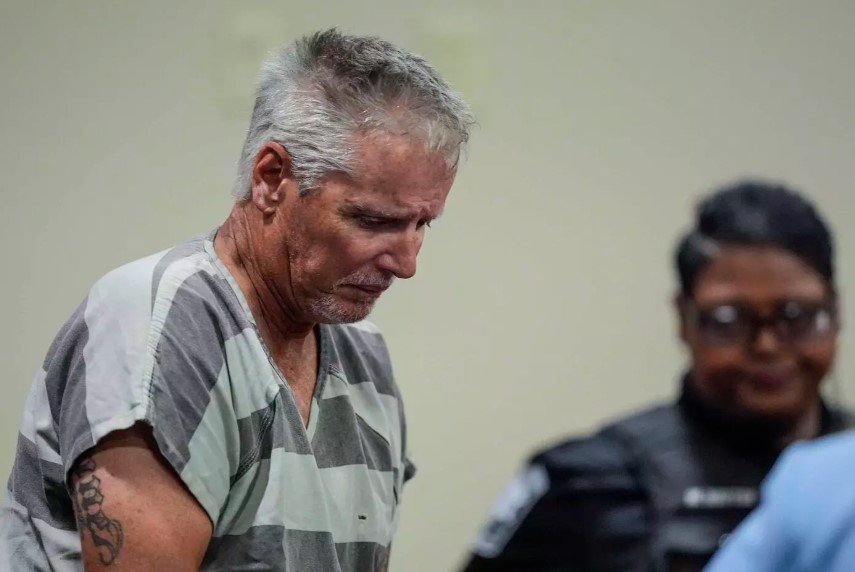A Georgia man accused of multiple charges related to his son’s alleged school shooting was granted a $500,000 bond on Tuesday, potentially setting the stage for his release after five months behind bars. Colin Gray, father of 17-year-old Colt Gray, faces 29 charges, including second-degree murder and manslaughter, following the deadly attack at Apalachee High School last September.
Judge Allows Bond Despite Severity of Charges
Colin Gray’s bond decision came after hours of deliberation in a packed Barrow County courtroom. Prosecutors argued that Gray’s negligence as a parent directly contributed to the shooting, pointing to his alleged failure to secure firearms at home. Defense attorneys countered, claiming he had no knowledge of his son’s intentions and had been unfairly targeted in the wake of the tragedy.
Judge Robert Keller acknowledged the gravity of the case but cited Gray’s lack of a prior criminal record and strong family ties as factors in granting bond. “This decision was not made lightly,” Keller stated. “The court recognizes the immense pain caused by this tragedy while also ensuring due process.”

Gray’s conditions include house arrest, electronic monitoring, and a strict no-contact order with victims’ families.
The Case Against Colin Gray
Authorities allege that Colin Gray’s negligence played a role in enabling the school shooting that left four dead and multiple others wounded. His son, Colt, is accused of storming Apalachee High School on September 4, armed with a rifle and multiple rounds of ammunition.
Prosecutors outlined key allegations against the elder Gray:
- Failing to secure firearms at home, allowing his son access to weapons.
- Ignoring warning signs of Colt’s behavioral issues and violent tendencies.
- Possible obstruction of justice in the aftermath of the attack.
Gray has pleaded not guilty to all charges, with his attorneys arguing that he had no way of predicting his son’s actions. “This is a tragic case, but holding a father criminally responsible for the actions of his child sets a dangerous precedent,” said lead defense attorney Mark Winslow.
Community Reaction Remains Divided
The decision to grant bond has sparked strong reactions from both victims’ families and community members. Outside the courthouse, a small group of protesters held signs demanding justice for those killed in the attack, calling Gray’s release “an insult to the victims.”
Meanwhile, some legal experts see the ruling as a fair move. “It’s a complex situation,” said Georgia State law professor Emily Larkin. “Parental responsibility laws exist, but the burden of proof in a case like this is incredibly high. The prosecution still has to prove that Gray’s actions—or inactions—directly led to the shooting.”
For now, Gray remains in custody as he works to meet the financial conditions of his bond. His next court appearance is scheduled for early March.
Legal Implications and What Comes Next
Gray’s case is one of several high-profile prosecutions testing the limits of parental responsibility laws in mass shootings. Legal experts say it could set a precedent for similar cases nationwide.
A table outlining parental prosecution cases in school shootings:
| Case | State | Charges | Outcome |
|---|---|---|---|
| Ethan Crumbley’s parents | Michigan | Involuntary manslaughter | Awaiting trial |
| James and Jennifer Crumbley | Michigan | Negligence, gun access | Convicted |
| Colin Gray | Georgia | Murder, manslaughter, child cruelty | Ongoing |
If convicted, Gray could face decades in prison. His son, Colt, remains in juvenile custody but is expected to be tried as an adult.
The case will continue to unfold in the coming months, with national attention growing over the broader implications of holding parents legally accountable for mass shootings. For now, both the legal system and public opinion remain deeply divided over where the responsibility should ultimately lie.
